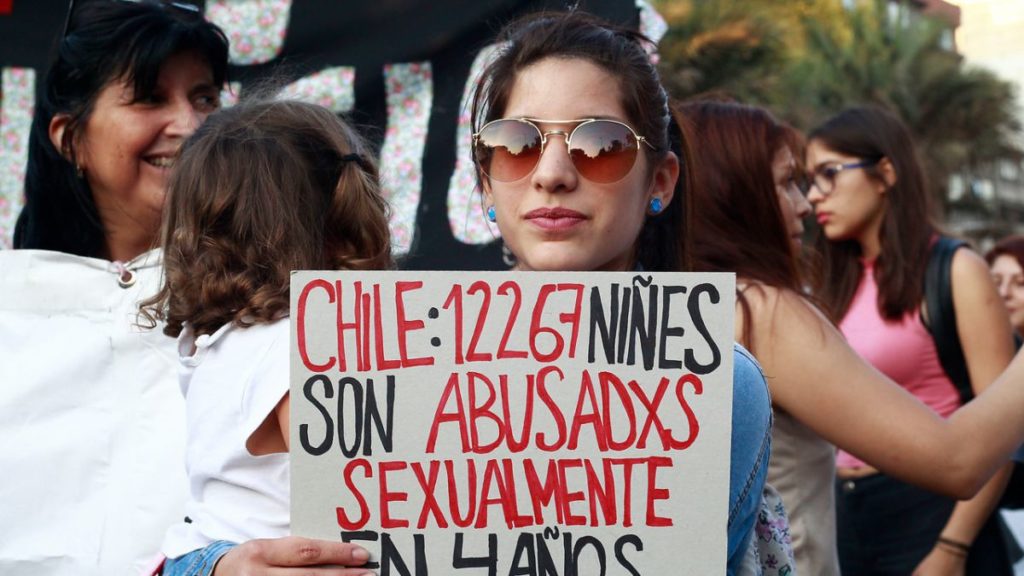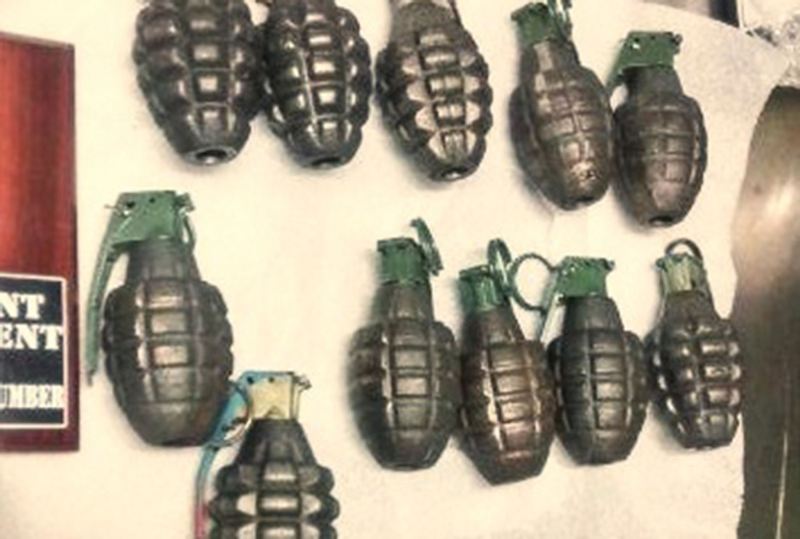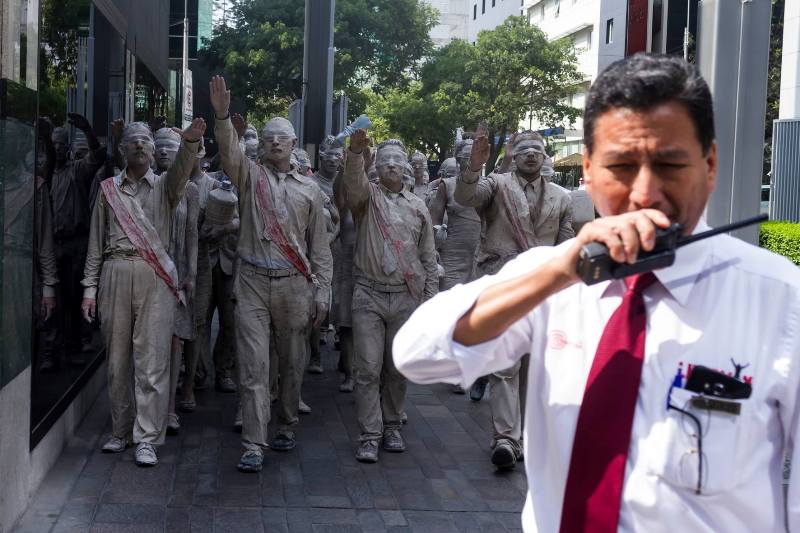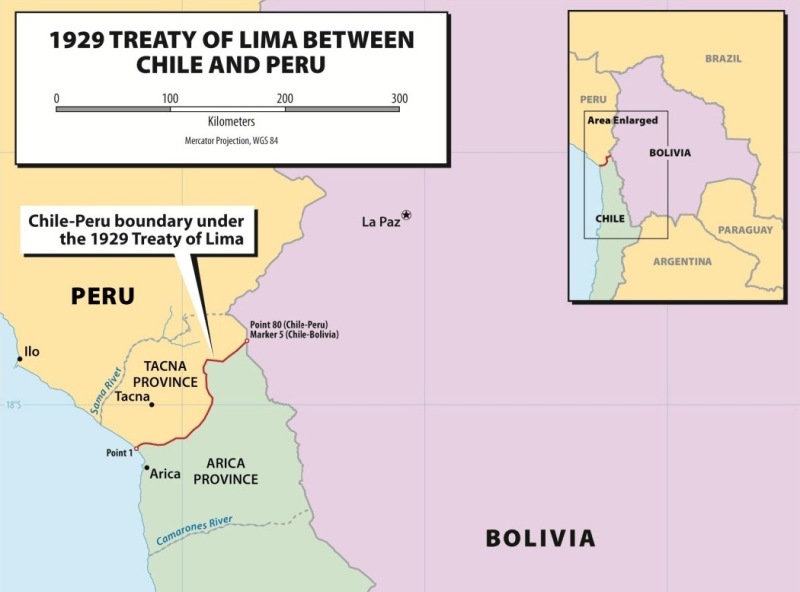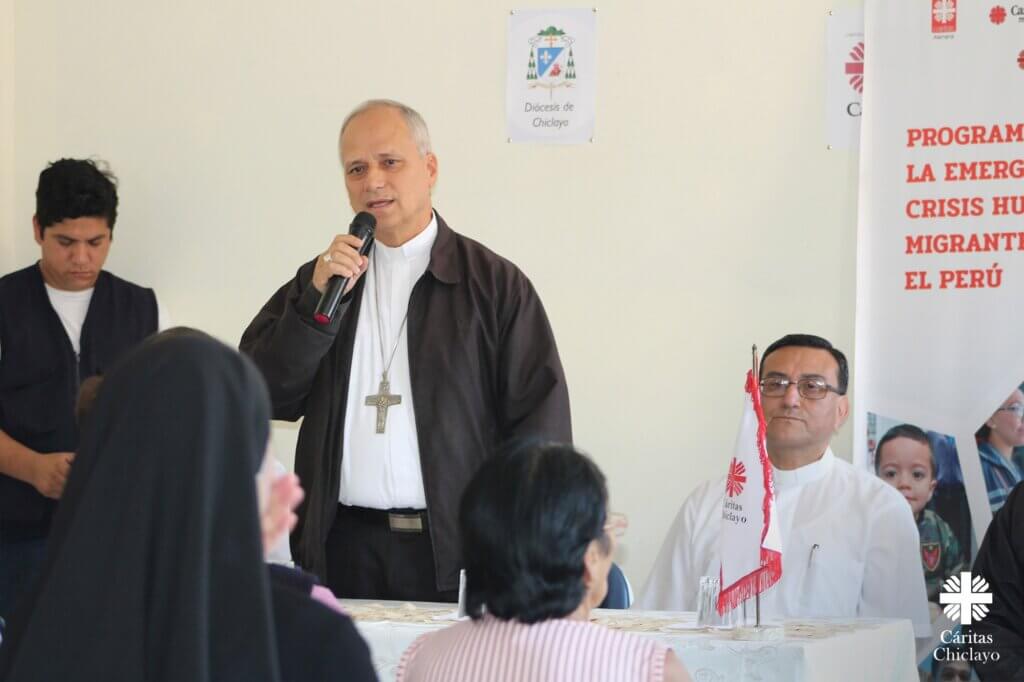A list of questions to leftist presidential candidate Veronika Mendoza about her ambiguous plans for Peru’s state oil firm, Petroperu.
Polls show left-wing presidential candidate Veronika Mendoza commands 4% of the vote, putting her in sixth place. Candidates beyond the top five are generally lumped into the “Others” category, which may be discouraging but it has the advantage of not having to defend their policies in detail. Nobody cares because they are not going to win.
So while Veronika Mendoza’s energy policy should theoretically garner no more scrutiny than Javier Velasco’s promise to recover Arica from Chile, Mendoza may not be an “Others” candidate for long. If Cesar Acuña is disqualified for vote-buying, which is likely, Mendoza becomes a top-five contender for the presidency of Peru.
Because Mendoza is posed to contend for president, her policies need be scrutinized. Unfortunately there is not much to scrutinize since she is long on rhetoric while short on details.
We are focusing on oil given her contradictory positions in the last year which saw her both protesting for Petroperu in August over the licensing of block 192 to a private firm and, six months later, protesting against Petroperu after oil spills in Loreto and Amazonas.
Her statements have generated more questions than answers, so we ask Mendoza about her energy policy and Peru’s state oil firm.
Will Mendoza’s government promote more production of oil in Peru?
“Our rivers, our lakes are being affected. Children are drinking contaminated water and eating contaminated fish and nobody is doing anything to stop this,” Mendoza said from an Amazonas district affected by this year’s spills. “The worst of all is that this is not the first time it happened. This always happens in our Amazon.”
Seeing the picture above and reading those words, any reasonable person would believe Mendoza is against oil production in Peru. Everybody is against oil spills. Unfortunately the only way to definitively stop oil spills is to not drill oil. To just leave it in the ground.
And leaving it in the ground is a suitable answer to this question. There are valid arguments against drilling. We won’t argue the policy, but we want to hear her policy. Because Mendoza cannot be both an environmentalist and a promoter of oil drilling.
Especially if Mendoza wants to promote more oil drilling to be done by the state, then she will inevitably be an adversary to the Indians and the environment as seen in Venezuela and Ecuador. We’re not asking her to say it like that of course, but simply saying she hopes to drill more oil will indicate her priority.
Any answer other than an unequivocal “more” vote would certainly mean less oil given the current price of oil making most projects uneconomical, an always tricky political situation in Peru and the trend of energy companies abandoning licenses they have already been granted. It would take considerable skill and a concerted effort to actually increase oil production from now until the end of the next president’s term.
This is the most important question on the list because, while Peru’s economy does not depend on oil, it does depend on mining. And like oil, mining projects follow the same contamination correlation. No commodity in any part of the world is immune from accidents. So whether Mendoza wants to produce more oil will also offer a clue whether she looks to produce more copper, gold and zinc, or if she will put the environment over extraction.
Will a Mendoza government seek to repeal Law 30130?
“[Petroperu] must be involved in the entire production chain, from extraction, transportation, refining and selling,” Mendoza said according to her Broad Front party’s website.
Given Mendoza seeks a greater role for Petroperu in whatever size the industry will look like under her government, how will she work around the 2013 law which defines constraints on new activities outside the $3 billion modernization of the Talara refinery?
Mendoza has said Petroperu should operate block 192, Peru’s largest licence, in cooperation with a private company as a partner. So given she is not completely against private companies, and if she says she would not repeal Law 30130, we would know she is in favor of Petroperu working exclusively within the framework of private-public partnerships (APPs) in accordance with the law.
The law allows Petroperu to raise money by selling up to 49% of the company’s shares on the Lima stock exchange, and it requires a minimum 40% of the firm’s shares to be sold before the it can raise any debt for projects other than the Talara modernization.
Will Mendoza push the partial privatization of Petroperu to finance new projects in extraction, transportation and selling, the activities she referred to? If so, we would know that she plans to respect shareholder rights such as having their own directors on the company board as well as, more importantly, the right to litigate against the Peruvian government for acting against minority shareholders.
If Mendoza is not going to pursue a model of cooperation with private firms or promote the private capitalization of Petroperu, her vision implies new projects wholly-owned by the state, which requires the repeal of Law 30130’s restraints on the firm’s ability to borrow money.
Will Mendoza seek to replace Petroperu president German Velasquez?
“My commitment is to modernize Petroperu, to turn it into an efficient state enterprise at the service of the country, and which offers fair prices,” Mendoza told Andina. “We do not want any more oil spills due to inefficiency or incompetence of bureaucrats who are not sensitive to the damages and liabilities generated in native communities.”
Mendoza is implying a drastic overhaul in the structure and culture of the 47-year-old company with 2,600 employees and $4 billion in annual revenue. However, Mendoza is not running to be president of Petroperu. Such an existential shift in the company’s mission requires an executive champion to lead the epic change.
If Mendoza looks to oust German Velasquez, who will take his place?
Will Mendoza consider reducing oil royalties?
Petroperu incurred a net loss of over $60 million on $4 billion in sales in 2014. Mendoza’s plan will face a sizeable budget gap if the firm is going to reduce the price consumers pay for energy while expanding into new activities (especially drilling, which it has not done in decades), all in a cleaner way for the environment and of course respectful to indigenous communities.
Let’s be easy and not forecast a shortfall in the hundreds of millions of dollars. But there will be a shortfall, and where does it get made up?
Is Mendoza open to reducing the royalties paid out to regional governments like Loreto?
Will Mendoza consider raising taxes to subsidize Petroperu? Which taxes? Personal income tax, corporate income tax, sales tax? Something else?
Emerging from the “Others” field will define whether Mendoza will continue to be a niche candidate of the left, where she can always be a stalwart legislator and perennial “Others” candidate advocating for progressive values. If that’s her goal, she can continue to offer vague visions which are less than serious at best, and absurd at worst. But if she wants to make the transition from a legislator to an executive, she will have to go on the record with detailed policy.
Mendoza has protested comparisons to leftist leaders from Latin America’s “pink tide” during the commodity boom. But especially now, during the commodity bust, she must relieve journalists and the public from the guesswork in wondering whether Petroperu during her government will follow the model of Venezuela’s PdVSA, Brazil’s Petrobras or Colombia’s Ecopetrol. She can start with the questions in this article.
Sources
Verónika Mendoza propone modernizar Petroperú y fiscalizar firmas extranjeras (Andina)
Memoria anual 2014 (Petroperu)
Ley No. 30130 (Congreso)
“En Venezuela se han dado procesos electorales democráticos” (El Comercio)
Petroperú perdió en 2014 más del doble que lo reportado antes (El Comercio)
En noviembre se inicia emisión de bonos para modernizar refinería de Talara (Gestion)
Verónika Mendoza llegó a Inayo y condenó derrame de petróleo que provocó Petroperú | VIDEO (La Republica)
Mendoza: “Petroperú debe participar en la explotación de hidrocarburos” (Frente Amplio)



